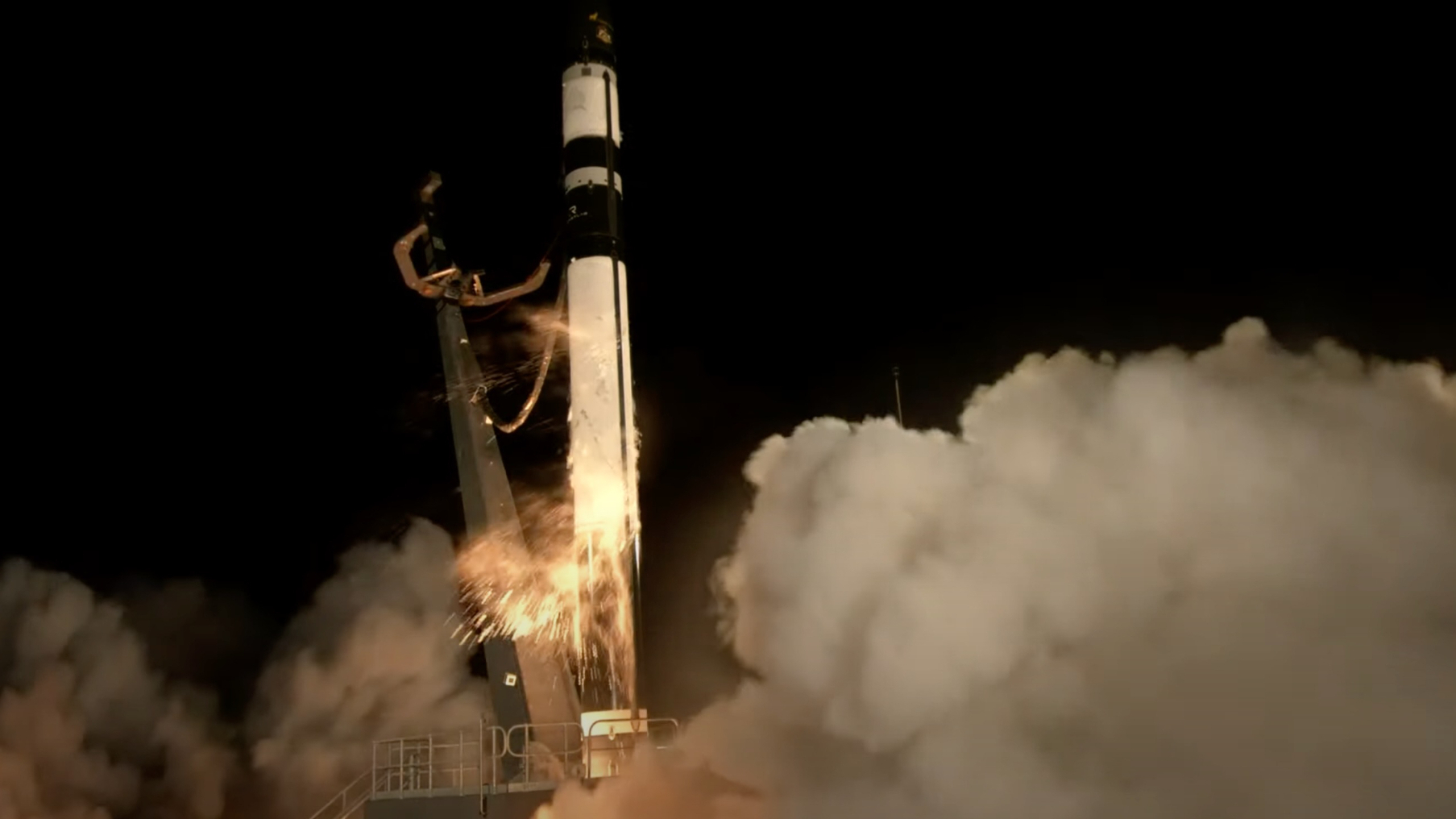September launch failure likely caused by 'electrical arc,' Rocket Lab says

Breaking space news, the latest updates on rocket launches, skywatching events and more!
You are now subscribed
Your newsletter sign-up was successful
Want to add more newsletters?

Delivered daily
Daily Newsletter
Breaking space news, the latest updates on rocket launches, skywatching events and more!

Once a month
Watch This Space
Sign up to our monthly entertainment newsletter to keep up with all our coverage of the latest sci-fi and space movies, tv shows, games and books.

Once a week
Night Sky This Week
Discover this week's must-see night sky events, moon phases, and stunning astrophotos. Sign up for our skywatching newsletter and explore the universe with us!

Twice a month
Strange New Words
Space.com's Sci-Fi Reader's Club. Read a sci-fi short story every month and join a virtual community of fellow science fiction fans!
Rocket Lab thinks it knows what went wrong on its most recent launch.
The California-based company suffered a failure on Sept. 19 with its Electron rocket, resulting in the loss of a commercial Earth-observing satellite. Rocket Lab has been investigating the anomaly ever since, and it has homed in on a likely cause.
"The cause of the anomaly is a highly complex set of conditions that are extremely difficult to replicate in testing," Rocket Lab founder and CEO Peter Beck said in a statement on Wednesday (Nov. 8).
"However, we believe the findings of the Rocket Lab investigation team overwhelmingly indicate that an electrical arc occurred within the power supply system that provides high voltage to the Rutherford engine's motor controllers, shorting the battery packs which provide power to the launch vehicle's upper stage," he added.
Related: Rocket Lab launches booster with preflown engine for 1st time (video)
Electron is a 59-foot-tall (18 meters) rocket that gives small satellites dedicated rides to Earth orbit and beyond. (An Electron recently sent the CAPSTONE cubesat toward the moon, and Rocket Lab aims to launch a Venus mission with the vehicle in late 2024.)
Electron consists of two main stages, plus a small "kick stage" that delivers satellites precisely to their final orbits. The vehicle's first stage performed well during the Sept. 19 mission, which aimed to send a synthetic aperture radar satellite to orbit for the San Francisco-based company Capella Space.
Breaking space news, the latest updates on rocket launches, skywatching events and more!
The problem occurred 2.5 minutes after liftoff, around the time when the single Rutherford engine that powers Electron's second stage was supposed to fire up.
The U.S. Federal Aviation Administration (FAA) is overseeing the mishap investigation. Even thought that inquiry is ongoing, the FAA has confirmed that Rocket Lab's launch license remains active, company representatives said recently.
And Rocket Lab plans to put that license to use soon.
"With growing confidence in our determination of the anomaly's probable root cause and corrective measures in place, we expect to formally close our investigation in the coming weeks," Beck said in the Wednesday statement. "Electron's return to flight is scheduled during a launch window that opens from November 28, 2023, and extends into December."
That mission was booked by Japan-based Earth-imaging company iQPS, Rocket Lab representatives said in the same statement.
Rocket Lab has now launched 41 times to date, delivering to orbit a total of 177 satellites. Before Sept. 19, its most recent failure occurred in May 2021.

Michael Wall is a Senior Space Writer with Space.com and joined the team in 2010. He primarily covers exoplanets, spaceflight and military space, but has been known to dabble in the space art beat. His book about the search for alien life, "Out There," was published on Nov. 13, 2018. Before becoming a science writer, Michael worked as a herpetologist and wildlife biologist. He has a Ph.D. in evolutionary biology from the University of Sydney, Australia, a bachelor's degree from the University of Arizona, and a graduate certificate in science writing from the University of California, Santa Cruz. To find out what his latest project is, you can follow Michael on Twitter.
